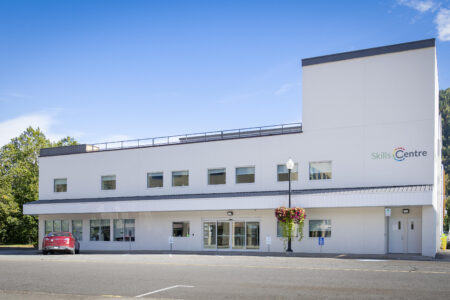Tax Time, Budget Time
TAX TIME: Time to Think About What Our Governments are Doing With Our Dollars.
In Rossland:
Rossland’s new City Council is preparing our 2015 budget, and collecting ideas and opinions from citizens on how best to deal with our serious “infrastructure deficit.” The City is collecting people’s thoughts by way of a new process, “ThoughtExchange,” run by a Rossland company in collaboration with the City. If you’re not already taking part, click here to begin telling the City what you think — in a structured way. And if you don’t have a computer, or just don’t like using one, go to the Rossland Legion on Friday, February 20, from 12:45 PM to 2:45 PM to provide your thoughts face-to-face with a Councillor and a ThoughtExchange representative. There are also paper versions available at City Hall — you can pick them up and submit them by February 20.
BC’s New Budget:
Across the Province, school boards must cut their administrative spending by a total of 29 million dollars in the 2015-2016 school year, and a further 25 million in the 2016-2017 school year, according to a press release from the BC School Trustees Association. The BCSTA states that those funds “will not be retained in the K-12 system … Although the education budget will be increased over the next three years …” These statements leave me scratching my head and wishing for more clarity. Perhaps some knowledgeable readers can fill in a few factual gaps.
Meanwhile, BC is increasing its Medical Service Plan premiums by 4%, according to Green Party MLA Andrew Weaver. Weaver is upset that a person earning $30,001 annually pays “the exact same amount” for MSP as a person earning $3,000,000 or more. He suggests that BC should do as all other provinces do, and simply do away with charging separate premiums for MSP, and include the charge in our income tax bill — which would have the effect of firmly tying the amount each of us pays for MSP to the amount we earn. At present, BC does have “premium assistance” for people earning $30,000 or less — but the amounts payable jump from zero (for those earning $22,000 a year or less) and up, in five stages, to $72 monthly for those earning even a dollar more than $30,000 — and up to millions and millions! A family of three or more will pay $150 monthly, whether their income is $40,000 or 400,000. If you agree with that it would be more equitable to include medical services in our income taxes instead of charging separately, and want to let our government know about it, you can sign Weaver’s petition: click here.
David Black, a spokesperson for the union representing workers at BC Hydro and the Insurance Corporation of BC says, “Almost everyone in B.C. is paying the government more through ICBC premiums and Hydro rates, but the richest in B.C. are getting a big break from the BC Liberals on the taxes. The government should balance the books fairly, not by hitting average families.” Black said that only individuals earning over $150,000 a year are getting a two per cent tax break.
The BC Federation of Labour also spoke up to criticise the provincial move toward consolidating more wealth in the hands of the already wealthy. “It is extremely disappointing that the government is giving a tax break to the highest earners in our province, but are willing to leave our lowest paid workers living in poverty,” said Irene Lanzinger, BCFL president.
Budget 2015 confirms that the personal tax rate for incomes above $150,000 will be eliminated. The loss of revenue to the province from this move is estimated to be more than 200 million dollars a year. The government has also confirmed that it will not increase the minimum wage, which has been stagnant for three years.
BCFL says there are currently more than 120,000 people in BC earning minimum wage. 47 per cent of those are over 25, and 63 per cent are women. “The government is essentially giving a raise to the highest earners. And the rest of us are being left behind with stagnant wages and paying more in fees and premiums, like MSP, ferry fares, tuition fees and hydro rates,” said Lanzinger. “Further, this budget makes no substantial improvements to the public services people rely on every day, including health care and education.”
The Canadian Centre for Policy Alternatives (CCPA) has made a number of observations about the new BC budget, including one piece of good news: BC is ending is “claw-back” of child support pyaments. This will enable single parents to keep the funds paid by contributing parents for the support of their children. Clawing those funds back, was — in my opinion — immoral and contrary to the intention of child support legislation, so the government has merely righted one wrong.
CCPA points out that income assistance rates remain frozen and have been frozen since 2007; that there is no cost-of-livng increase to rates paid to Persons With Disabilities; that BC spends more each year providing tax credits to corporations than to low income people; and that BC collects more money in tuition fees for post-secondary education than it does in royalties for natural gas — even though natural gas production is at an all-time high. And more about that 4% hike in MSP premiums — the budget for health care is being increased by only 2.8%.
CCPA also states that this BC budget makes no provision for action on climate change. “The carbon tax, which was supposed to be revenue neutral, is continuing to give away $400 million per year more in tax cuts than it collects in revenues. Most of those are funding business tax cuts. If we made the carbon tax truly revenue neutral, BC would have an additional $400 million every year to spend on meaningful climate action investments.”
Is anyone happy about the new BC budget? Oh yes — the Association for Mineral Exploration British Columbia (AME BC) is delighted that our government has met “its commitment to increase funding for the Mines and Mineral Resources Division of the Ministry of Energy and Mines. We believe that this important budget lift will be a strong catalyst to increase public and investor confidence in the mineral exploration and development sector, particularly now and when the minerals cycle enters its next upswing.”
As announced by Premier Christy Clark on January 26 at AME BC’s Mineral Exploration Roundup 2015 conference, the provincial government has committed to nearly tripling base funding of the Mines and Mineral Resources Division — increasing it from $6.3 million to $17.1 million as well as an extension of the $10 million BC mining flow-through share tax credit through December 31, 2015. Further to Premier Clark’s announcement, mineral exploration will be exempt from permitting fees.
It’s time to let our governments know how we want them to spend our tax dollars. We elected them to serve us, and in my mind, “us” is our larger community — our society as a whole and everyone who is part of it.

























